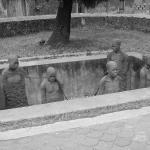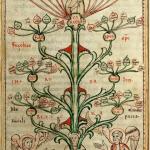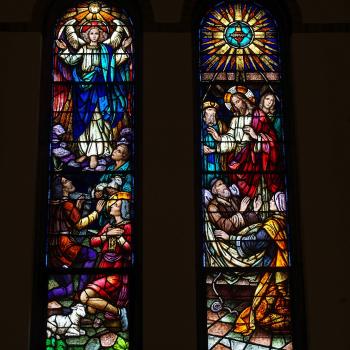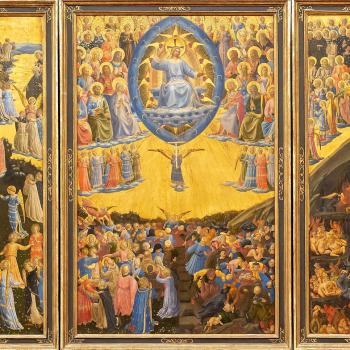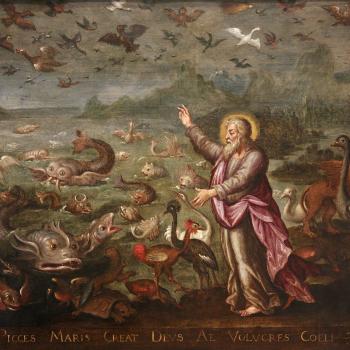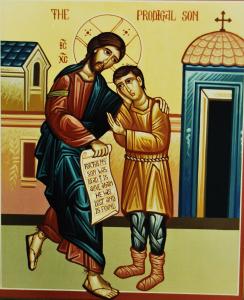
Paul speaks of Christian freedom, highlighting what differentiates it from other notions of freedom: Christians are to follow after the good, to seek after and engage what is helpful (to themselves as well as to others); they are not to be mere slaves to the passions, letting the passions dictate to them what they should do. This is because, though the passions can and do include various elements of the good, people get so attached to them that they ignore the greater good and so end up harming themselves or others due to such neglect. The key, Paul says, is to remember that we should become a temple of God. We should seek to be holy, to follow after greater and greater forms of the good. This is possible when we let God’s grace enter into us. It will transform us, giving us what is necessary to transcend ourselves, to become deified, and in the process, become someone in which others can encounter the presence of God:
“All things are lawful for me,” but not all things are helpful. “All things are lawful for me,” but I will not be enslaved by anything. “Food is meant for the stomach and the stomach for food” — and God will destroy both one and the other. The body is not meant for immorality, but for the Lord, and the Lord for the body (1 Cor: 12-13 RSV).
Paul is not telling us to deny the body its needs. He is not even telling us to deny each and every pleasure which the world has to offer. He knows if we did so, we would be causing ourselves undue harm, and that goes against the good which God intends for us. However, he reminds us that once our needs are properly satisfied, we are to focus ourselves on what is good and true, that is, what best serves the work of the Lord in the world. We should become vessels of mercy and grace: immorality, actions which needlessly harm others and ourselves, undermine the work of grace, because grace seeks to build up, to perfect, indeed, to elevate us and all that is around us, while true immorality keeps us stuck so that we do not become better.
Nonetheless, if we find ourselves giving in to our passions, letting them control us, all is not lost. There is still hope for us. The passions are founded upon various goods; everyone who seek after and engages a particular passion seeks some particular good for themselves, but they do so in an inordinate fashion. The key is to realize that the good contained even in bad actions remains attached to and pointing to the greater good, no matter how much evil tries to separate the two. Thus, because no action does not contain some element of good, that good can lead us back to the greater good, and then the greater good will then point us to God, who is the source and foundation of every good. As we seek after greater and greater goods, we will find God is pleased with us, giving us more and more grace, more and more boons from the bounty of the kingdom of God, welcoming us, as it were, with a great feast – the great eucharistic feast of the kingdom of God. For the lamb of God was slain from the foundation of the world, prepared as food and drink for all creation, is given to us in the great and glorious eschatological feast, a feast which is hinted at in Jesus’ the parable of the Prodigal Son:
And he arose and came to his father. But while he was yet at a distance, his father saw him and had compassion, and ran and embraced him and kissed him. And the son said to him, `Father, I have sinned against heaven and before you; I am no longer worthy to be called your son.’ But the father said to his servants, `Bring quickly the best robe, and put it on him; and put a ring on his hand, and shoes on his feet; and bring the fatted calf and kill it, and let us eat and make merry; for this my son was dead, and is alive again; he was lost, and is found.’ And they began to make merry (Lk. 15:20-24 RSV).
Through the parable, we are given a glimpse of what will happen in the eschaton: fallen creation will return to God, and God, full of love and joy, will welcome that which had once been lost. Indeed, God will clothe it with glory, that is, deify it, as is symbolized by the robe, ring, and shoes in the parable. Obviously, as a part of fallen creation, we have gone our own way, looking for our own limited good. God has given us the freedom to do so, to let us discover what it is like to be all that we can be all by ourselves; while we will find pleasure and joy in such freedom, they will be limited, and over time, we will find them less and less satisfactory. Eventually, we will realize that there is something more which we need. The good we have, the good we achieve, will, as it were, dry up and become like nothing. Even the pleasure which we once experienced will be gone. At such a time, we will find that even the freedom we thought we had vanishes, and our lives will be that of slaves, where we do all things out of necessity, receiving little in return. Then, if we pay careful attention to what is happen, if we become aware of what we have made of ourselves, we can truly look back to where we came from, to the glory which we once had, and hope to have it again; all need to do is go back to where we began, something which is possible thanks to the grace which Christ has given to us and all the world. The lamb of God has already been slain, the world is moved by Christ to its restoration. The feast is ready. Let us do all that we can do to go back to our original good and partake of it ourselves.
Stay in touch! Like A Little Bit of Nothing on Facebook.
If you liked what you read, please consider sharing it with your friends and family!


